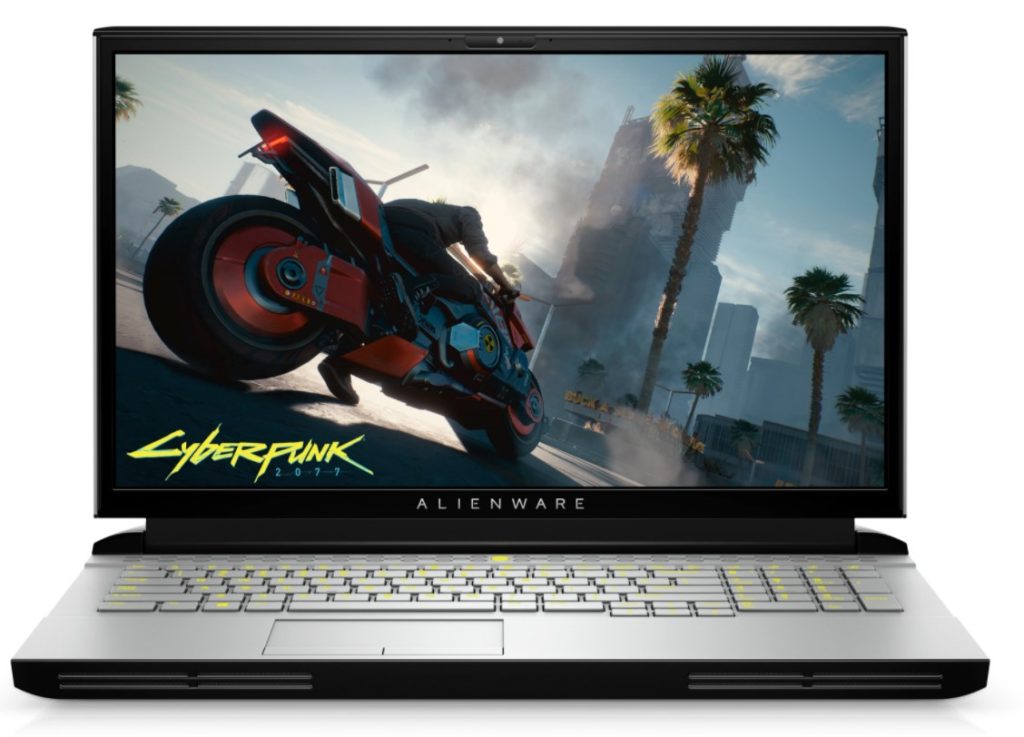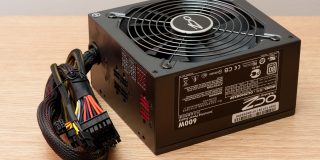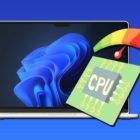Should I Use a Laptop or Desktop for PC Gaming?

When it’s time to decide on a new build to satisfy your gaming itch, one of the first questions is always “Do I buy a laptop or a desktop for gaming?” Unfortunately, the first question can be the most difficult to answer. However, it will provide a good foundation to guide you in your purchasing process.
Luckily, the choice these days is extremely forgiving compared to even five years ago. Due to significantly improved mobile part performance, modern laptops can perform similarly to comparable desktop PCs
This article will detail the most common gaming laptop vs. desktop PC comparison points to provide a clearer overview of the choices and perhaps nudge you towards an answer.
Gaming Laptop vs. Desktop: Portability
One of the primary debates between laptop gamers and desktop gamers is portability. If you’re a seasoned gamer, you probably already have a PC that you’ve used for playing and know the ins and outs of the build. One of the biggest challenges in picking a new build is usually the reluctance to stay in one place.
As their name might suggest, laptops are favored for mobility and portability. After all, that’s what they were designed to do. However, don’t be fooled by the thin, lightweight systems that first come to mind. Gaming laptops have well-developed chassis, but there’s also a limit to how much you can shrink components. As a result, modern systems can be beasts that weigh as much as five to six pounds. Ultimately, a good laptop bag will allow you to take the system anywhere you want without much of a hassle. Still, it’s not going to be such a piece of cake as it was ten years ago if you want top-notch performance as well.
An additional benefit of a laptop is that it runs on battery power, at least for a couple of hours. Depending on what type of laptop you’re using and how far you’re pushing its limits, you can get a few hours of game-time in before the battery starts to run out. After that, you can pretty much always find a power outlet to charge the device from and keep it running.
On the other hand, desktop PCs don’t go anywhere once you set them up. So if you’re considering moving with a PC, you’ll probably need a car to transport the tower and the necessary peripherals (monitor, keyboard, and mouse at the minimum). Even a small form-factor tower can be unwieldy to move around, and you’ll still need to lug the monitor with you.

As far as portability is concerned, laptops are clear winners. Despite their weight increase over the past few years, they can still fit into a bag and travel with you. If you’re a student or frequently travel around for work, a gaming laptop can give you a great gaming experience on the go. Plus, they’re typically overqualified to handle office and schoolwork unless you’re deep into art, software, or CAD design.
Gaming Desktop vs. Laptop: Performance
While it was one of the most pressing talking points a few years ago, performance is no longer so much of an issue with laptops. Hardware manufacturers have made plenty of progress in mobile part design, bringing them almost up to par with their desktop counterparts. In fact, some graphics cards – generally considered the main separator between laptop and desktop performance – are no longer distinguished into traditional and “mobile” versions, with negligible differences between the two.
However, desktops have an advantage when it comes to sheer performance. Take the GTX 1660 Ti, one of the most popular mid-range gaming cards, as an example. The mobile versions of the graphics card have between 10% and 15% less memory speed, which can directly influence performance, although the subjective feeling might not be that dramatic.
One of the most significant performance differences that won’t show up in specification lists is heating and cooling. Due to a laptop’s smaller size, manufacturers have to cut their losses and pack more circuits closer.
Overall, the performance differences between gaming desktop and laptop builds are minor up until a certain point. A desktop’s overclocking and upgradability potential pushes it over the edge. Additionally, more options for gamers to choose from in the highest tiers when customizing their build. Some top-notch hardware doesn’t even have a laptop analog at all.

Laptops and Desktop Gaming PCs: Value and Price
A few years ago, desktops would be the clear winners. With the laptop hardware technology of back then, you couldn’t really imagine a gaming laptop coming close in terms of performance with a similarly-priced desktop.
Unfortunately for desktop gamers, the recent changes in hardware parts and the soaring cost of computer chips have evened out the scale in laptops’ favor. Due to extremely high demand, new GPUs are notoriously difficult to come by. Some of the most anticipated models, the RX 3080 and RX 3070, are nowhere to be found for their MSRP (manufacturer’s suggested retail price). If you manage to get a hold of one, you might be paying more than twice the MSRP, increasing the build price beyond what any gaming laptop costs entirely. And this is only considering just one hardware piece.
Over the past few years, the massive spike in GPU prices – and some other hardware parts – is primarily due to the pandemic and rapidly changing worldwide supplies. If you don’t need a high-end machine, which is typically overkill for anything but the most recent games anyway, midrange builds are much more favorable and not as affected by market shifts.
If you look at what you can get for about $1,000 when it comes to gaming laptops and desktop parts, the differences can be staggering. On average, buying a desktop PC will cost about $200 to $300 more than buying a laptop with the same or similar specs. A desktop will need more parts to function, however, especially if it’s your first. For example, a gaming monitor can set you back a few hundred dollars alone and will be one of the main bottlenecks if you skimp out on it. After all, there’s no use in getting a build that can run at 150 FPS if your monitor only displays 60.
When buying a desktop, you also have to consider the costs of building one from parts and getting a pre-built system. While most tech chains will carry a few higher-end desktops, these often don’t have the performance evocative of their price. You can typically save enough money to upgrade a few crucial pieces by ordering parts yourself and building the PC from scratch.
Desktop PCs are probably the kings of connectivity. If you need a specific port or a connection, there’s likely a PC slot that can be used to fit a card for it. While many desktops don’t get built-in Wi-Fi and Bluetooth connections the same way laptops do, these are not necessary for stationary or gaming builds. Ethernet connections are the preferred choice for gaming due to their reliability anyway. However, what you can do with a desktop PC usually can’t be emulated with a laptop easily or at all.
One of the primary benefits of desktop PC gaming is the opportunity to set up multiple monitors. Laptops can typically connect to one external monitor, and the size and positioning differences between their native screen and standard monitors make it a hassle. On the other hand, desktop GPUs can often output to three or more screens simultaneously, providing vast viewing areas for maximum enjoyment. While it will take a considerable chunk of money to get to that build, it’s just one of the options that make desktop gaming a more lucrative endeavor.
Bonus: Screen Size for Laptop and Desktop PCs
One of the often-overlooked gaming features is the screen size. While gaming laptops can get big, their screens don’t get larger than 18 inches. This is paltry compared to the sizes available in modern monitors. While you can always get a monitor to go along with your system when you’re at home, prolonged viewing of a small screen might make it more tiring on the eyes.
With desktop PCs, your budget is pretty much the limit when it comes to monitor sizes. A 27” or 32” monitor can be found for a reasonable price, and you can probably still get away with getting a system for less money overall. There’s also the option of a curved monitor if that’s something you fancy.
Putting It All Together
When it comes to laptop vs. desktop gaming, there’s no clear winner. If you’re a student or travel regularly, you’ll more likely appreciate a laptop’s portability despite it performing a bit worse and costing a bit more. On the other hand, dedicated gaming desktops offer more viable options, and their customizability is pretty much limitless, but they’re stuck in one place. In the end, buying a PC is all about conforming to your personal preferences. That’s why it’s called a personal computer.




















